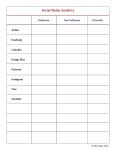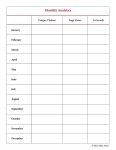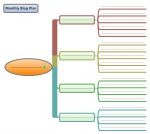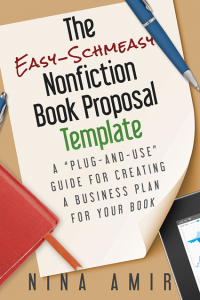
Module five, delves into writing your blogged book and blogging in general. Blogging a book parallels writing a book quite closely. On the other hand, as you blog your book, you must keep some important principles in mind that specifically apply to writing for the Internet.
Therefore, in this module you learn about how to search engine optimize your blog posts by using keywords, which, are the search terms related to your book or blog placed in search engines by potential readers. This involves using them in both your post titles and content. You learn how to engage readers in your posts, know when to hit “publish” on your posts, and set and keep a publishing schedule.
Additionally, you discover if your blog has readers by studying blog analytics. This also helps you determine if your book-blogging efforts are developing the author platform you seek.
You create a long-term blog plan (for after you complete your book) and plan for success—for a finished book and for the possibility of being discovered by a publisher.
It’s important to understand search engine optimization, a strategy that primarily revolves around keywords and keyword phrases, when you blog a book. However, by focusing on the topic of your book and blogging consistently you organically provide the search terms that drive potential readers to your blog and drive your posts up in the search engine results pages.
Blog analytics help you know if you have achieved your goals by helping you track increases in readership. So you need to get at least a bit comfortable with them and track your blog’s growth in readership each month. Looking at your social network growth also helps you see if your platform is growing. These statistics get placed in a book proposal, if you plan on approaching agents or publishers, and your business plan should get turned into a formal proposal as you blog your book so you are prepared for discovery.
In fact, you should be planning for the future. Finish your business plan (if you are going to self-publish, create a blog plan to help promote your book once complete) and generally prepare for success.
Module Five Video
Module Five Audio
Click to listen or download now
Module Five Video PDF
Click to view or download now
Exercises
Begin blogging your book!
- Write 3-5 posts based on your plan.
- Put all the principles you learned about writing for the internet to use as you write your blogged book.
- Place a keyword in your title and in your first paragraph if possible.
Check or install blog analytics
- Either install Google Analytics on your blog or check your current statistics on Google Analytics or your C-panel.
Extend your blogging plan
- Create an extended blogging plan for promoting your book once finished. How will you blog about your book? (1, 3, 6, or 12-month plan).
Plan for Success
- To self-publish, add costs, deadlines, subcontractor list, etc., to your business plan.
- To traditionally publish, turn your business plan into a formal proposal. Create an agent/publisher list. Edit sample chapters.
Track your progress
- Create a spreadsheet or a document where you record your blog’s unique visitors and page views on a monthly basis (or use the one provided).
- Create a spreadsheet or a document where you record how many followers you have on each of your social networks (or use the one provided).
Resources
Search Engine Optimization
- WP SEO by Yoast
- Google Analytics
Analytics
Monthly Social Media Analytics Record (PDF)
Monthly Blog Analytics Record (PDF)
Writing

Ebook: 7 Tips on Writing Your Blogged Book
Extended Blog Plan
Bonuses!
The Easy-Schmeasy Nonfiction Book Proposal Template
The Nonfiction Book Proposal Demystified
Coaching Session Audio








